
Bipartisan Agreement on Infrastructure, Analyzing The White House Budget: July 2 Joint Center Roundup
Biden Administration

Bipartisan agreement on infrastructure: Lawmakers have reportedly come to an agreement on an infrastructure deal. The $1.2 trillion bipartisan deal, introduced as the INVEST in America Act, will direct “federal investments in roads, bridges, transit, rail, drinking water and wastewater infrastructure, reimagines our national transportation policies and helps meet the President’s vision to invest in American workers and communities while tackling the climate crisis head-on.” It will also include $65 billion for broadband infrastructure. New York Times reports it will be the “first major increase of federal public works spending since President Obama’s 2009 economic rescue plan.”
Several Congressional Black Caucus members expressed support of the INVEST in America Act, including Congresswoman Cori Bush (D-MO), Congressman André Carson (D-IN), Congressman Dwight Evans (D-PA), Congressman Donald McEachin (D-VA), Congressman David Scott (D-GA), and Congressman Bennie G. Thompson (D-MS).
President Biden continues to stand for racial equity despite blowback: President Biden’s efforts to distribute pandemic relief aid equitably and forgive the debts for Black farmers and other farmers of color has been met with lawsuits by conservative groups claiming the policies are discriminating against white communities. Until a decision is made on the lawsuit, payments and processes to help people of color are stalled. However, New York Times reports that White House officials “insisted that the president would not be deterred in his belief that the government needed to be more mindful of communities that had been overlooked.”

The White House budget & Black communities: Joint Center Workforce Policy Director Dr. Alex Camardelle published an analysis explaining how President Biden’s budget would support Black workers and families, and where it falls short: “To ensure a just recovery for Black communities, we need bold investments. Congressional approval of the Biden budget would be a step in the right direction. Let this budget be the foundation from which the current and future administrations and Congresses build.”
President Biden talks voting rights and Supreme Court tolerates Arizona’s attempts to scale back voting: This week, President Biden met with White House Senior Advisors and outside experts to discuss “anti-voter legislation that has been proposed or recently passed by state legislatures, legislation pending before Congress, and recent actions taken by the Department of Justice to protect the right to vote.” President Biden committed to continually working to pass critical legislation and “reiterated his unwavering determination to win the fight to protect the sacred right to vote in free and fair elections.” Congressional Black Caucus Congressman Jamaal Bowman (D-NY) and other Democrats argue President Biden “had not been outspoken enough ahead of a Senate vote last week on the For the People Act.” Earlier today, the U.S. Supreme Court issued a decision holding that the Voting Rights Act does not prevent Arizona’s recent attempts to scale back voting that evidence showed had a discriminatory impact on voters of color (new laws banning the counting of in-person ballots cast out of precinct for races in which the voter is entitled to vote and prohibiting third parties from returning completed absentee ballots). NAACP LDF’s statement on the decision is here.
BLM leaders meet with Biden: In an email statement to CNBC, Black Lives Matter Global Network Foundation said they were “surprised by their lack of progress on issues that matter to Black people,” after their leaders met with White House officials to discuss their policy agenda. Black Lives Matter Global Network Foundation also criticized President Biden for “arguing for increased spending on police rather than investing in housing, education, climate preparedness and healthcare,” and noted that “[t]his is no time to return to the dangerous days of the tough-on-crime fear-mongering of the 1990s when more cops were placed in our neighborhoods, rather than services that improve lives and keep Black communities safe.”
Biden supports peaceful protest at Olympics: Olympian Gwen Berry drew criticism after she turned away from the American flag during the national anthem. When asked about the appropriateness of Berry’s protest, White House Press Secretary Jen Psaki told reporters that President Biden would say that “part of that pride in our country means recognizing there are moments where we, as a country, haven’t lived up to our highest ideals, and means respecting the right of people granted in the Constitution to peacefully protest.”
The Hill
CBC and Media 2070 urge the FCC to conduct an equity audit: Congressional Black Caucus members Congressman Jamaal Bowman (D-NY), Yvette Clarke (D-NY), and Brenda Lawrence (D-MI), alongside Media 2070, sent a letter to the acting FCC chair urging an equity audit that addresses “the harm the agency’s policies and programs have caused Black and Brown communities and identifies the affirmative steps the agency commits to taking to break down barriers to just media and telecommunication parties.” Earlier this month, Media 2070 called for media reparations for the Black community as “lack of diversity and representation” in media are long standing areas of concern for media advocates and experts who argue “historical exclusionary policies and regulations” have made it challenging for “Black Americans and others to control and shape news coverage and other forms of media in communities across the nation.” According to a 2020 report, as of 2017, “Black Americans owned or controlled less than 1% of television stations,” but currently make up 12.4% of the population. Additional members of the CBC, Congresswoman Karen Bass (D-CA) and Ilhan Omar (D-MN), and several other members of Congress signed the letter in support.
New bill addresses improved housing conditions and tenant protections: On Tuesday, Congressional Black Caucus Members Congresswoman Ayanna Pressley (D-MA) and Maxine Waters (D-CA), as well as Congresswoman Rashida Tlaib (D-MI), announced the Tenant Empowerment Act of 2021. This bill would “empower tenants to protect their housing rights and to hold the federal government and building owners accountable for unsafe and unhealthy living conditions.” Congresswoman Ayanna Pressley (D-MA) emphasizes how health hazards in substandard housing “disproportionately impact tenants of color” and argues “housing is essential to public health and economic mobility.” Black people make up 12.4% of the U.S. population, but account for 46% of Americans who receive assistance through HUD.
CBC Member joins House Select Committee on Economic Disparity and Fairness in Growth: Congressional Black Caucus Member Congresswoman Gwen Moore (D-WI) is selected to join the United States House Select Committee on Economic Disparity and Fairness in Growth. This Select Committee will create legislation related to access to education, economic fairness, and workforce development and work with the Committees of Jurisdiction to “study and recommend proposals to make our economy work for everyone.”
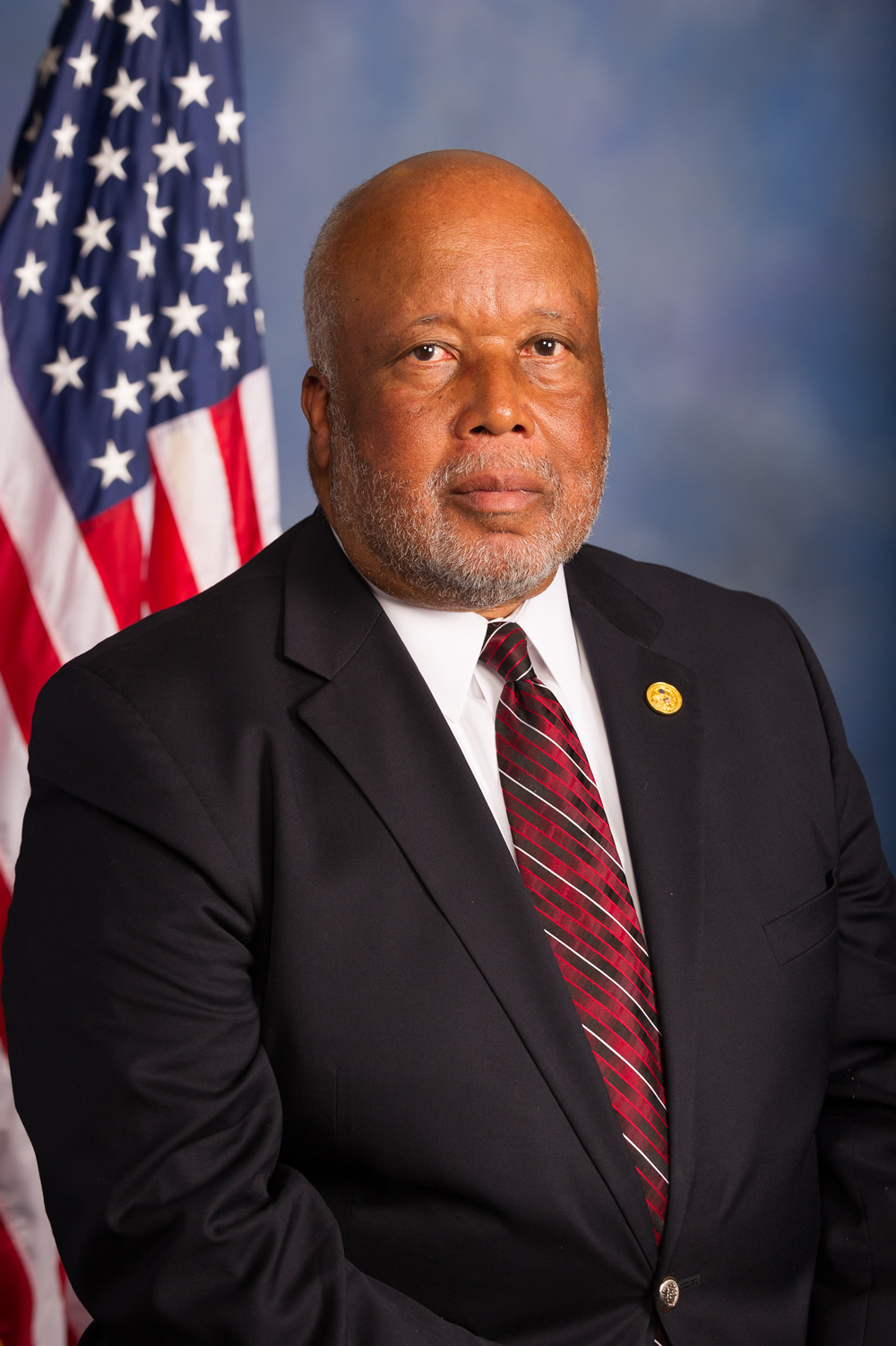
Push for Congressman Bennie Thompson to lead investigation on Jan. 6 insurrection: Congressional Black Caucus members are suggesting House Homeland Security Committee Chairman Bennie Thompson (D-MS) to chair the Select Committee dedicated to investigating the January 6 insurrection on Capitol Hill. Congressman Thompson has signaled interest in the position and told POLITICO that he would take things “step by step” including “the facts, circumstances, and causes related to the domestic terrorist attack on the Capitol.” In addition to choosing the Select Committee Chair, Speaker of the House Nancy Pelosi (D-CA) is also reportedly “seriously considering” appointing a Republican lawmaker to the select committee. Speaker Pelosi will also appoint eight members and House Minority Leader Kevin McCarthy (R-CA) will appoint five to the select committee.
Bill to remove symbols of “slavery and segregation” in the Capitol heads to the Senate: Congressional Black Caucus Chairwoman Joyce Beatty (D-OH), House Majority Whip James Clyburn (D-SC), Congresswoman Karen Bass (D-CA), Congresswoman Barbara Lee (D-CA), and Congressman G.K. Butterfield (D-NC) applaud the passage of H.R. 3005 by a 285 to 120 vote in the House. This bill would remove former Chief Justice Roger Brooke Taney from the Capitol and replace it with a bust of Associate Justice Thurgood Marshall. Additionally, the bill will also remove statues or busts that are symbols of slavery and segregation, “including statues and busts of those who served voluntarily in the Confederate States of America,” from public display in the U.S. Capitol. The bill now heads to the Senate “where Democrats have vowed to use their narrow majority to try to advance it.”
Civil rights leaders call for ‘results’ in George Floyd Justice in Policing Act negotiations: Civil rights leaders “collectively demand that Congress honor its commitment to produce a final bill that can pass the House and Senate before the end of June and ensure a strong George Floyd Justice in Policing Act is passed before the August recess.” The statement was signed by the Lawyers’ Committee for Civil Rights Under Law, the Leadership Conference on Civil and Human Rights, NAACP, NAACP LDF, National Action Network, National Coalition on Black Civic Participation/Black Women’s Roundtable, National Urban League, and NCNW, Inc. The Grio reports that a framework for the legislation was announced last week, and Senator Tim Scott (R-SC), who’s leading the negotiations on the bill with Senator Cory Booker (D-NJ), “extended the timeline for police reform negotiations.” This week, Congresswoman Cori Bush (D-MO) introduced The People’s Response Act, which would establish a Division on Community Safety within the Department of Health and Human Services to limit police from responding to emergency situations involving people with mental health issues.
Economic & racial justice: The Subcommittee on Diversity and Inclusion, chaired by Congressional Black Caucus Chair Joyce Beatty (D-OH), held a hybrid hearing entitled “The Legacy of #GeorgeFloyd: An Examination of Financial Services Industry Commitments to Economic and #RacialJustice.” The hearing revolved around amending the Securities Exchange Act of 1934 “to require covered issuers to carry out a racial equity audit every 2 years, and for other purposes.”
Appointments
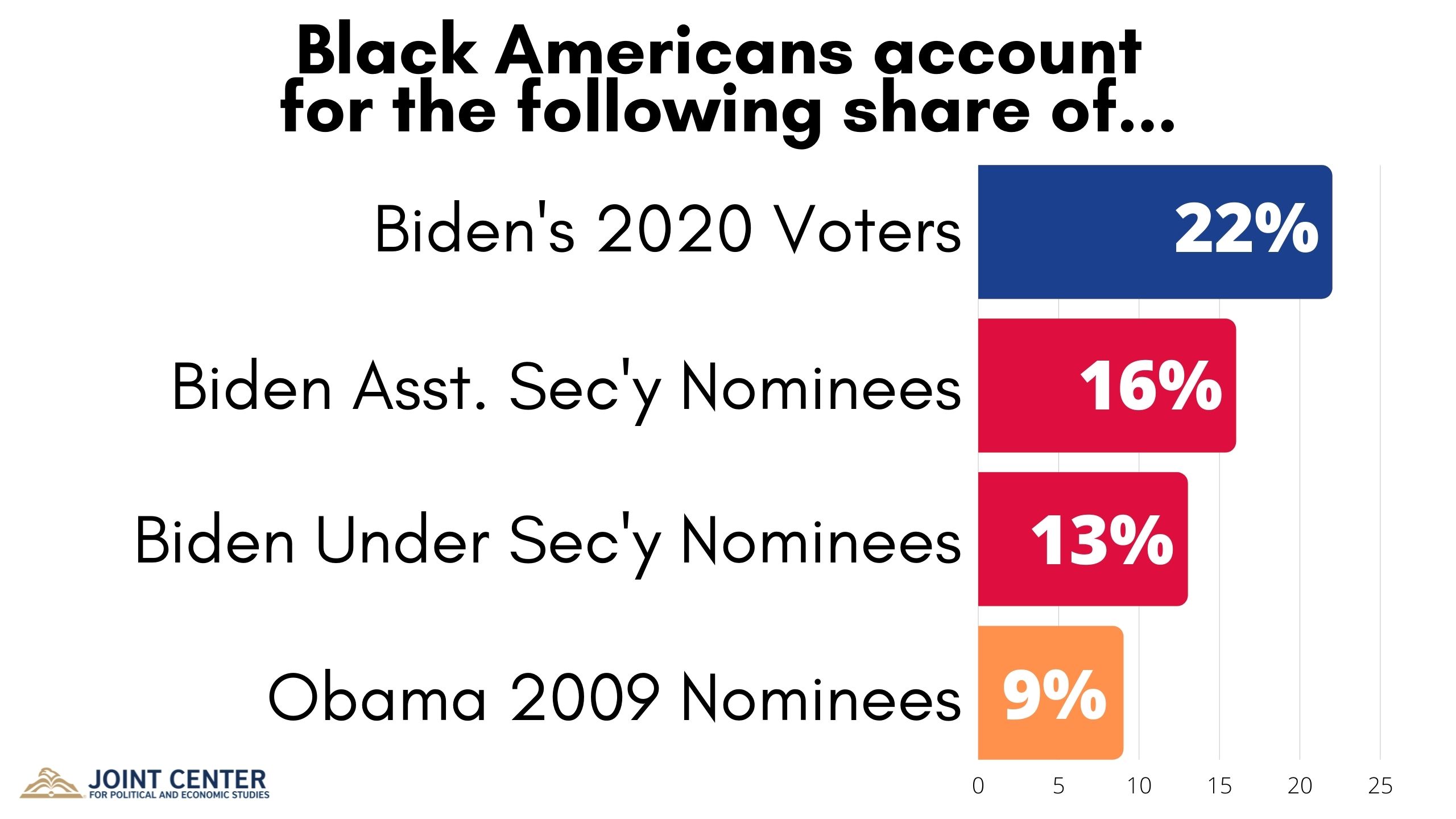
African Americans account for a greater share of Biden’s voters than Biden’s Assistant and Under Secretary nominees: The Joint Center’s Black Talent Initiative released a report card analyzing how President Biden is faring in nominating African Americans to Assistant Secretary and Under Secretary positions that require Senate confirmation. Our upcoming reports will focus on the Black share of Administrators and Directors at the 15 executive branch agencies, and the Black share of Chiefs of Staff of Cabinet Secretaries. Our analysis found that while Black Americans accounted for 22 percent of Americans who voted for Biden in the 2020 general election, Black Americans accounted for only 16 percent of Biden’s Assistant Secretary nominees and 13 percent of his Under Secretary nominees. However, President Biden’s nominees for these positions exceed the Black share of all of those who were nominated by President Obama and confirmed by the Senate in 2009 (9 percent).
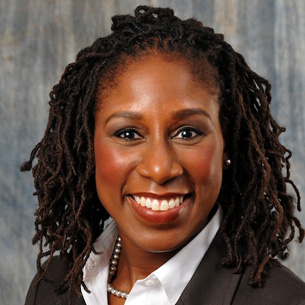
Senate confirms Judge Jackson-Akiwumi for 7th Circuit: The Senate confirmed Judge Candace Jackson-Akuwimi to serve on the United States Court of Appeals for the Seventh Circuit with a 53-40 vote. She will be the first former federal defender and second Black woman to serve on the court. There has not been a Black appellate judge on the 7th Circuit since Judge Ann Claire Williams left in 2018, even though it covers areas with significant Black populations like Chicago. In February, the Joint Center urged President Biden to prioritize appointing Black appellate judges (0 of Trump’s 54 appellate court nominees were Black).
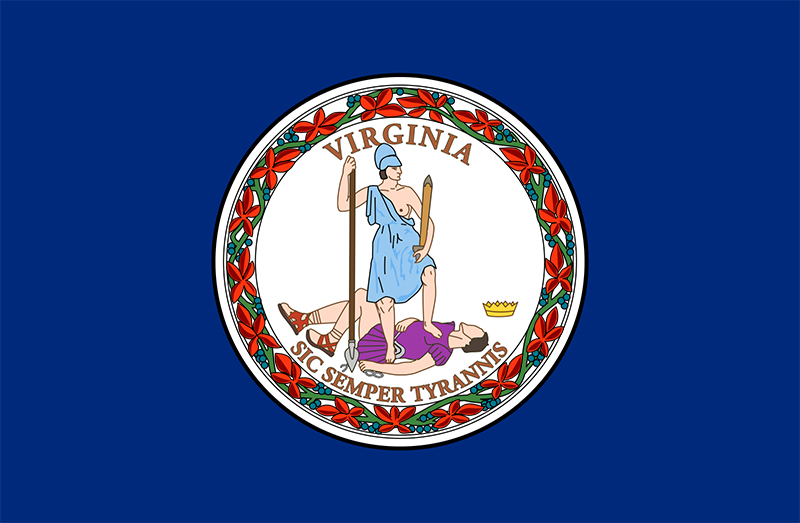
Biden nominates Patricia Tolliver Giles for United States District Court for the Eastern District of Virginia. Ms. Giles served as an assistant U.S attorney since 2003. She will be the second woman of color to serve on the bench.

Biden nominates Dr. Homer Wilkes for Under Secretary for Natural Resources and the Environment at the Department of Agriculture. Dr. Wilkes currently serves as the Director of the Gulf of Mexico Ecosystem Restoration Team. He has served over 41 years in the Department of Agriculture, where he has served as State Conservationist and Deputy State Conservationist for Mississippi, the Chief Financial Officer of the Natural Resources Conservation Service (NRCS) in Washington D.C., and as the Chief of Administrative Staff for the South Technical Center for NRCS in Texas. Dr. Wilkes also served in the U.S. Navy Reserves as a Naval Supply Officer for 23 years.
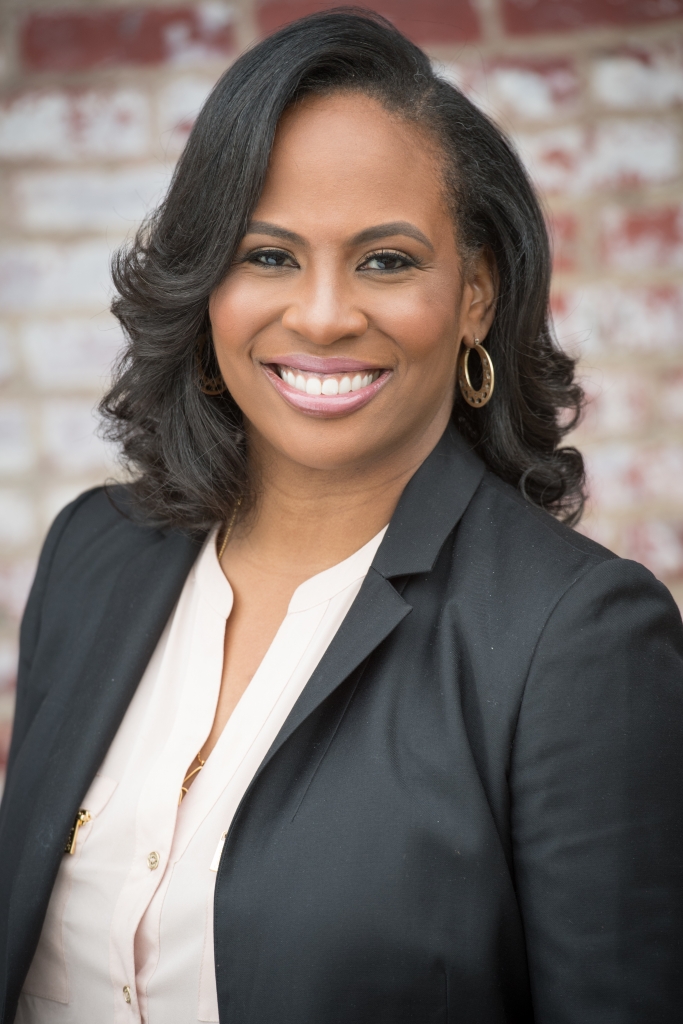
Biden nominates Kamilah Forbes for Member of the National Council on the Arts. Ms. Forbes is an esteemed award-winning director and producer for theater and television. She is currently serving as the Executive Producer at the world-famous Apollo Theater.

Biden nominates Barbara George Johnson for Member of the Board of Trustee of the Barry Goldwater Scholarship and Excellence in Education Foundation. Ms. George Johnson has over 30 years of experience as a public policy professional in New Jersey. She serves as the Vice President of External Affairs and Urban Policy and Research at Kean University.

Biden nominates Mildred Otero for Member of the Board of Trustees of the Barry Goldwater Scholarship and Excellence in Education Foundation. Ms. Otero is the Senior Vice President for National Impact at Leadership for Educational Equity (LEE). Prior to joining LEE, she served as the Chief Education Counsel in the U.S. Senate Committee on Health, Education, Labor and Pensions. Throughout her career, she has served in several policy roles, including as a senior advisor for the Department of State and the U.S. Agency for International Development, senior policy officer with the Bill and Melinda Foundation, and senior policy advisor to then Senator Clinton.

Biden nominates Fagan Harris for Member of the Board of Directors of AmeriCorps. Mr. Harris is the co-founder and CEO of Baltimore Corps. He also currently serves as the Assistant American Secretary for Rhodes Trust, where he oversees the scholarships annual recruitment and selection process. He previously co-directed the Impact Careers Initiative at the Aspen Institute where he led a team of researchers to publish scholarship on talent pipelines in the public and social sectors.

President Biden appoints Randy Moore to be chief of the U.S. Forest Service. Mr. Moore will be the first African American to lead the agency in its 116-year history. ABC News reports Mr. Moore held responsibility for 18 national forests in California and Hawaii as he served as a regional forester in the California-based Pacific Southwest region since 2007.
Economic Studies
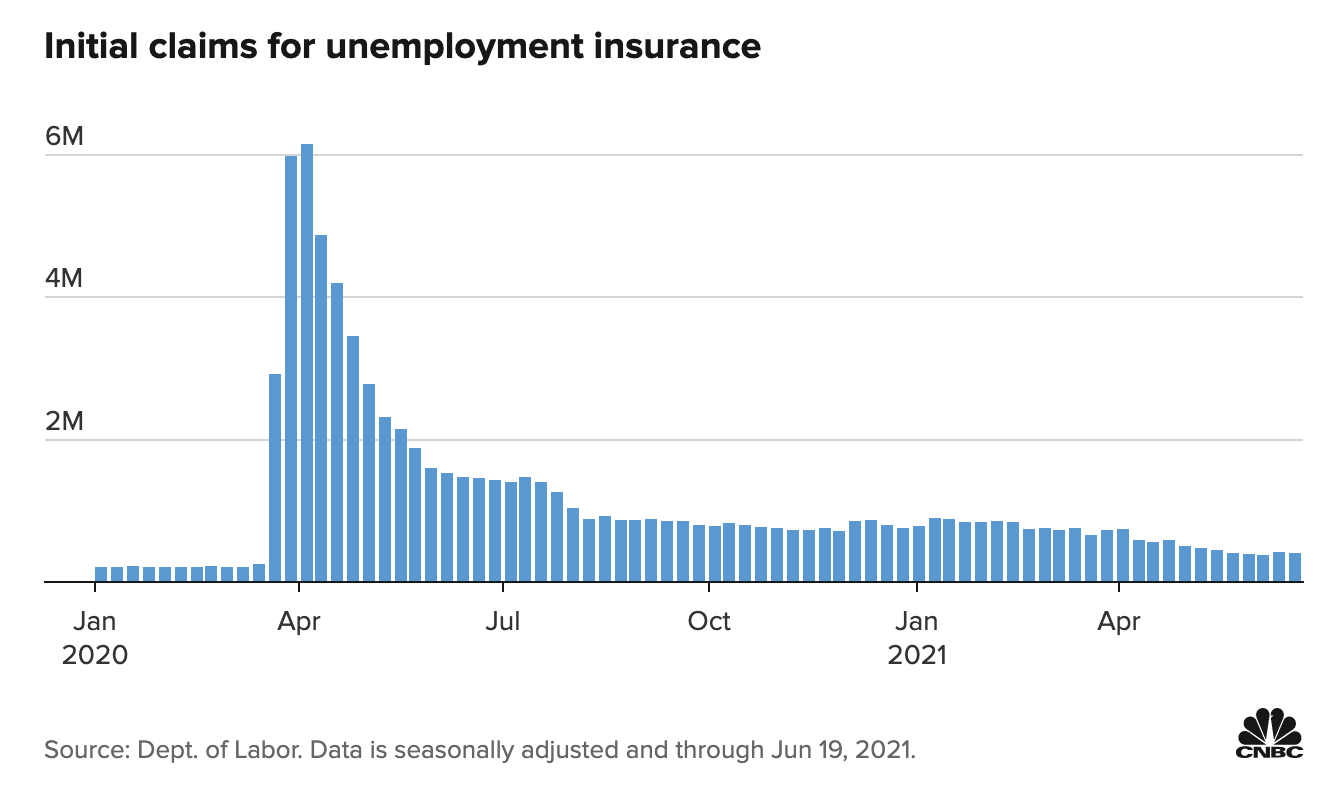
Falling slightly: Initial unemployment claims totaled 411,000 for the week ending June 19, down from 418,000 the previous week.
Grading the relief programs: Rep. James Clyburn (D-SC), chairman of the Select Subcommittee on the Coronavirus Crisis, held a hearing with Federal Reserve Chairman, Jerome Powell, to assess the Fed’s emergency coronavirus relief programs and to highlight the need for a more inclusive recovery.
Business optimism prevails: Fully 83 percent of Black business owners are optimistic about the future of their business. Fewer white owners (70 percent) are as optimistic, a Reimagine Main Street survey of over 1,300 small business owners finds. Black business owners identified healthcare, simplified Federal contracting, and infrastructure investment as important federal policy priorities.
Disappearing homeowners: Housing and Urban Development Secretary Marcia Fudge talks with Axios about why Black homeownership rates are declining even as rates for Asians and Latinos rise.
Reparations to repair the wealth gap: Black corporate executives and business owners discuss with CNBC the need for reparations and other opportunities to build wealth in the Black community.
Mortgage peril: Three times as many Black homeowners (12.3 percent) as whites (4.3 percent) were past due on mortgage payments in October 2020, a Federal Reserve study finds.
Eviction peril: Extending the eviction moratorium for one month is not enough given the severity of the housing crisis, argues the Center on Budget and Policy Priorities.
DC’s boom must be shared: Washington, DC, needs to ensure that Black people benefit from the population and economic boom in the city, the Urban Institute argues, urging policy changes.
Tech Policy
New name, bigger mission: The FCC’s Committee on Diversity and Digital Empowerment has been rechartered as the Communications Equity and Diversity Council with an expanded mission to more broadly review critical diversity and equity issues, Communications Daily reports. The Joint Center’s Director of Technology Policy, Dr. Dominique Harrison serves as a member of the Committee’s Diversity in the Tech Sector Working Group.
LA broadband bypasses Black communities: Low-income communities and largely Black communities in Los Angeles County are less likely to have broadband access, researchers at USC’s Annenberg School for Communication find. The largest deficits were in areas that were both poor and predominantly Black. This gap in broadband coverage in poorer neighborhoods of color is a digital form of redlining that promotes economic and racial discrimination.
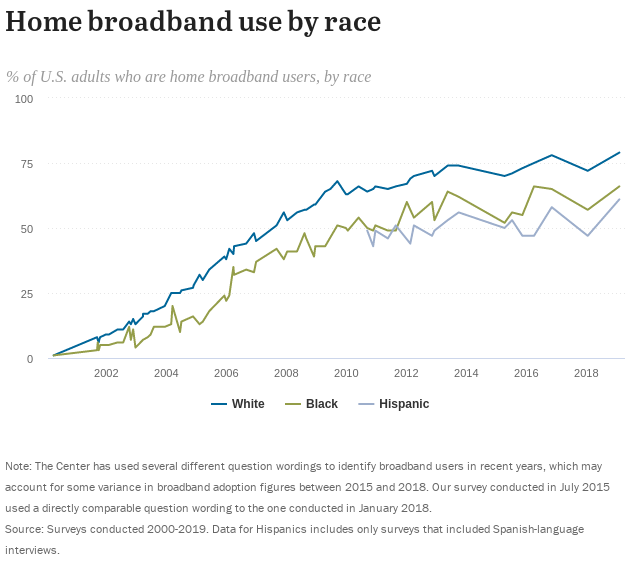
Make broadband subsidies permanent: Making the broadband subsidy permanent can help close racial inequities in internet access, argues Dr. Fallon Wilson, whose organization heads the Black Churches for Broadband Coalition. Only 71 percent of African Americans are connected to broadband at home versus 80 percent of whites.
Tech pay inequities persist: Just 4 percent of top earners in tech were Black in 2019, a Conference Board report finds, underscoring the persistent racial inequities that exist within tech companies despite tech’s well-publicized pledges in support of racial equity. The racial wage gap is increasing “in industries, occupations and locations where the fastest growth in high-paying jobs is taking place,” such as Big Tech.
Building resilient networks: Sen. Ben Ray Lujan (D-NM), chair of the Subcommittee on Communications, Media, and Broadband, held a hearing last week to explore ways the federal government can help build secure, resilient, and redundant broadband and telecommunications infrastructure.
Discrimination on job search sites: LinkedIn has taken steps to counteract bias in its algorithms designed to match people to job openings by building “another AI program to counteract the bias in the results” MIT’s Technology Review reports. Emerging examinations by civil rights groups and think tanks highlight the urgent need for further exploration of algorithmic decision-making in the human resource management context.
Future of Work & Learning
Cancel student debt: To close the racial wealth gap, cancel student debt, says Brookings, arguing that a college degree does not eliminate the income gap between Black and white workers (and likely adds to it). White college graduates have 7 times more wealth than Black college graduates.
Skills gap fiction: The country needs more public investment in workforce development to narrow racial job inequities, argues Brookings’ Andre Perry, showcasing a Philadelphia ship-building apprentice program as a rebuttal to the “skills gap” argument.
Truncated UI hurts Black workers: Black workers are among those hurt most by states’ efforts to cut or eliminate unemployment benefits, Politico reports. Nationally, Black people compose 18.4 percent of those who received benefits between January and May. But in states cutting unemployment benefits early, the differences are more pronounced. For instance in Georgia, where the governor is ending the federal benefits soon, 61.4 percent of recipients were Black.
Pathways to good jobs: A new study shows how employers can use work experience rather than college degrees to create springboards to economic advancement. The Rework America Alliance identifies 77 “gateway” occupations where Black workers are currently underrepresented but that lead to better jobs.
Trade policy increased job gaps: Import competition from China increased racial inequality for workers—one of several findings from a new study on U.S. trade policy’s impact on Black workers. Howard University researchers find that every 1 percentage point increase in import exposure leads to a 3.2 percentage point reduction in the share of Black employment.
Manufacturing reset: The country must fill more than 2 million manufacturing jobs in the next decade. A report from the Century Foundation lays out an action plan to ensure those jobs are inclusive. Recommendations include creating racially conscious community partnerships and collecting data on racial equity in federal training. Black workers represent 11.9 percent of the entire workforce but only 10 percent of manufacturing workers.
COVID-19
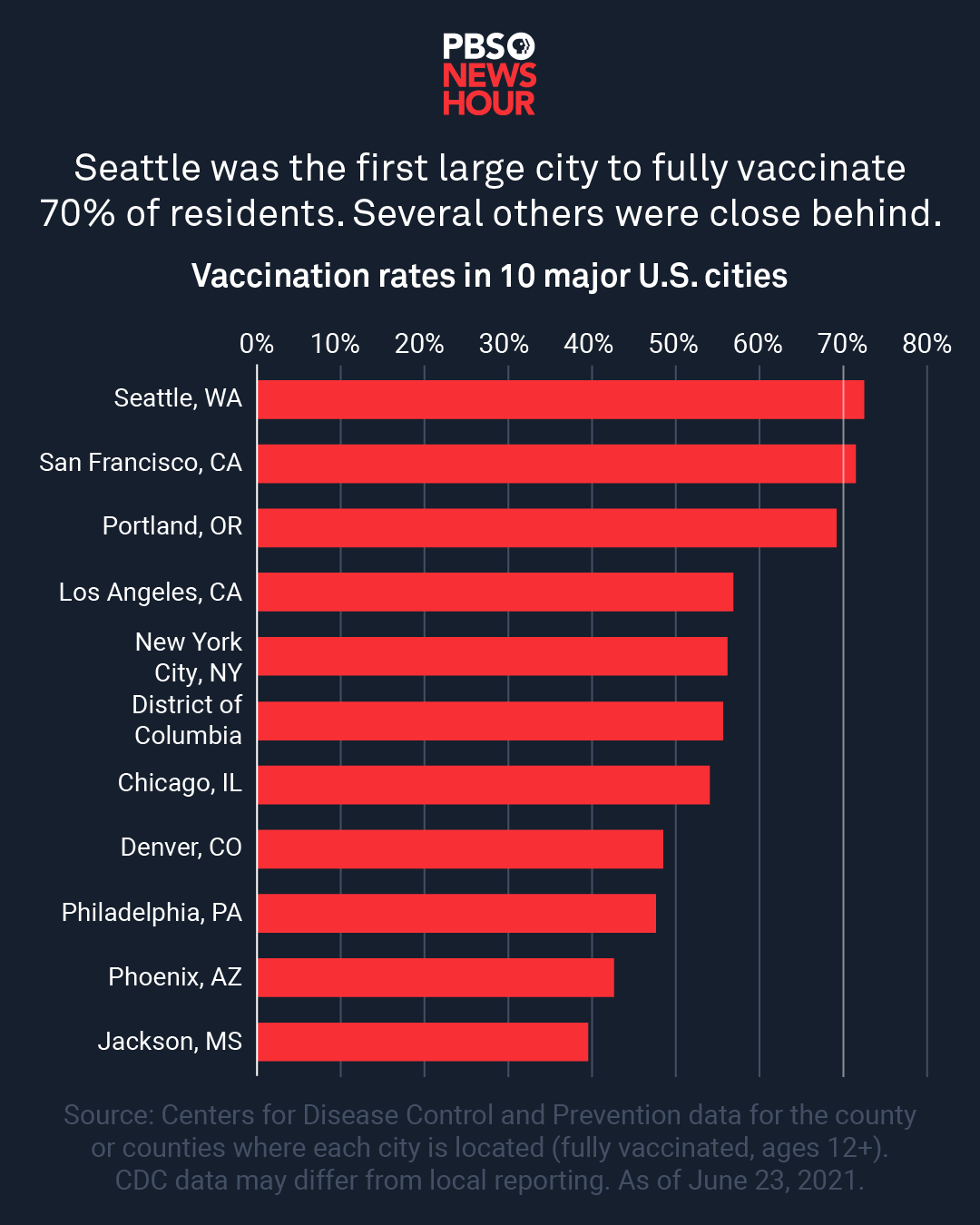
Vaccine reach remains uneven: More states and cities are hitting their COVID-19 vaccination targets, yet racial-ethnic disparities remain, PBS New Hour reports. For example, in King County, WA, which includes Seattle, 66 percent of white people, but only about half of Black and Latina/o residents, are fully vaccinated.
Death rate still climbing for Black people: In stark contrast to the overall drop in COVID-19 deaths in the United States, Black people are still dying at disproportionately higher rates, CNN reports. Black people compose 12.4 percent of the U.S. population, but more than 15 percent of total deaths. Throughout the month of May, 19 percent of COVID deaths were among Black people.
Cures for COVID disparities: Helping underfunded medical facilities and reducing the number of uninsured are two ways to narrow racial disparities in COVID-19 deaths and hospitalizations, Healthline reports. Despite similar prevalence rates, Black people are nearly 3 times more likely to be hospitalized and twice as likely to die from the disease as white people.
Unvaccinated millennials: Convincing young adults to get vaccinated remains a challenge, Washington Post reports. In a CDC survey of adults under 40, Black adults had low rates of having been vaccinated or planning to get vaccinated(40 percent).
COVID headway slows: Coronavirus rates are improving at a slower pace for Black residents of Los Angeles County than for white residents. Over a two-week period, case rates for Black residents declined by 13 percent but by 33 percent for white residents. Hospitalization rates fell by 11 percent and 34 percent, respectively.
Vaccine lags in Philly: The Black Doctors COVID-19 Consortium is working to reduce vaccine disparities in Philadelphia, taking vaccines directly to the city’s Black and other communities of color. While 70 percent of adult residents have received at least one dose of the vaccine, only 25 percent of Black Philadelphians are vaccinated, CNN reports. Black people compose 40 percent of the city’s population.
LGBTQ+ face medical racism: LGBTQ+ activists discuss what the COVID-19 pandemic revealed about medical racism and the lessons about protecting our most vulnerable communities that the US failed to learn following the HIV/AIDS epidemic.
Political Studies
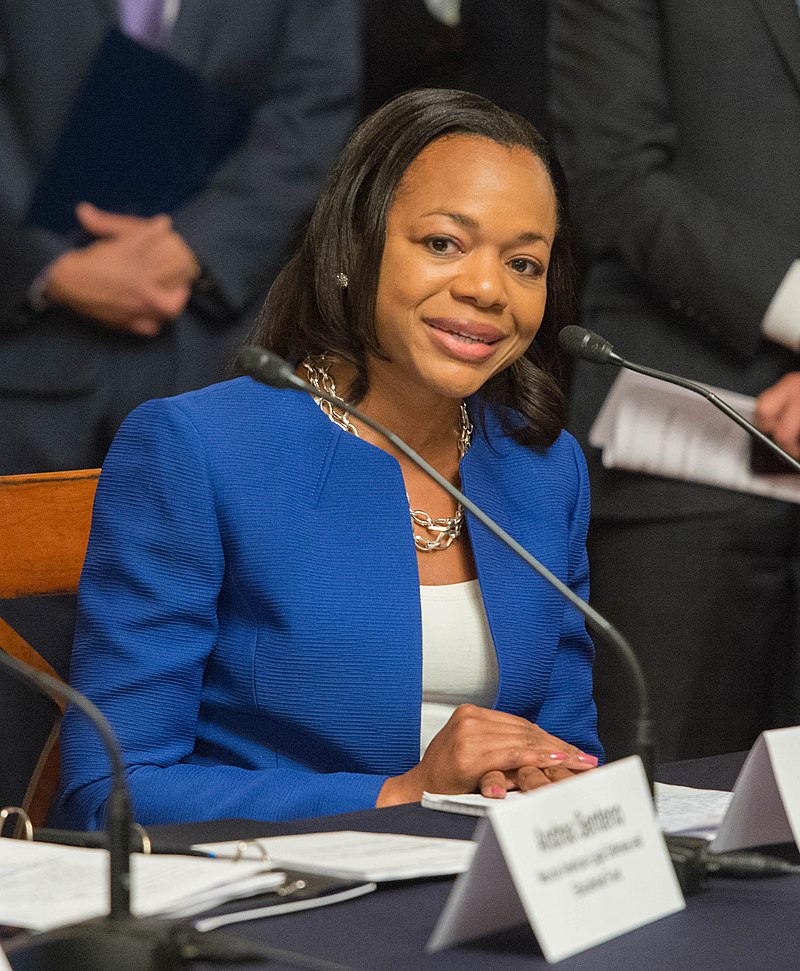
Justice sues Georgia: The U.S. Department of Justice has filed suit against the state of Georgia, which recently passed legislation restricting voting in the state. The complaint alleges that the changes in Georgia’s election laws were “enacted with the purpose of denying or abridging the right of Black Georgians to vote on account of their race or color, in violation of Section 2 of the Voting Rights Act,” The Hill reports. DOJ Civil Rights Division Assistant Attorney General Kristen Clarke delivered remarks outlining the details of the complaint.
Pass the baton: The death of Rep. Alcee Hastings (D-FL) at age 84 has raised the question for Democrats of how long elderly or infirm legislators should hold onto their seats, Politico reports.
Hill staffers talk budgets—their own: Eight House staffers tell Business Insider how they stretch their wages in DC, which start at less than $20,000. A 2019 House diversity survey found that 70 percent of staffers were white and only 7 percent were Black.
The latest culture war: Critical race theory is emerging as a battleground in the nation’s culture wars, Politico reports, as House Republicans push back against the theory, which posits that racism has been systemically ingrained in American society and institutions.
Black mayors take charge: Voters are turning to Black candidates to run the nation’s big cities. By the end of this year, 12 of the nation’s 50 largest cities will have Black mayors, The Hill reports.
Movement Building
Black Futures Lab launches their Black to the Future Public Policy Institute, a “policy advocacy and leadership training fellowship that provides the tools needed to transform Black communities into constituencies that wield independent, Black political power.”
Color of Change issues a petition demanding a Department of Justice investigation into “police departments across the country that threaten Black people.”<
Mass Humanities is hosting a series of public readings of Frederick Douglass’s 1852 speech “What to the Slave is the Fourth of July?” in several Massachusetts cities.
Events
Upcoming events include “Early Efforts | Infusing Equity Across State Early Childhood Systems” (The Hunt Institute, July 6); “Reconciliation 101: An explainer of the budget process” (Brookings Institution, July 6); “Postsecondary Pathways | College in High School Partnerships” (The Hunt Institute, July 8).
Last week, events were held by the Brookings Institution, Congressional Black Caucus Foundation, The Education Trust and Chalkbeat, The Hill, Politico, Urban Manufacturing Alliance, The Century Foundation, and The Groundwork Collaborative.
Podcast
Impact of Anti-Black Radicalization and Disinformation with Brandi Collins-Dexter (Aspen Institute)
Innovation: Using what we have to make what we need (Lumina Foundation)

